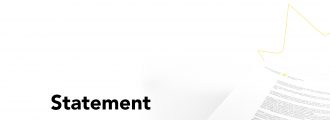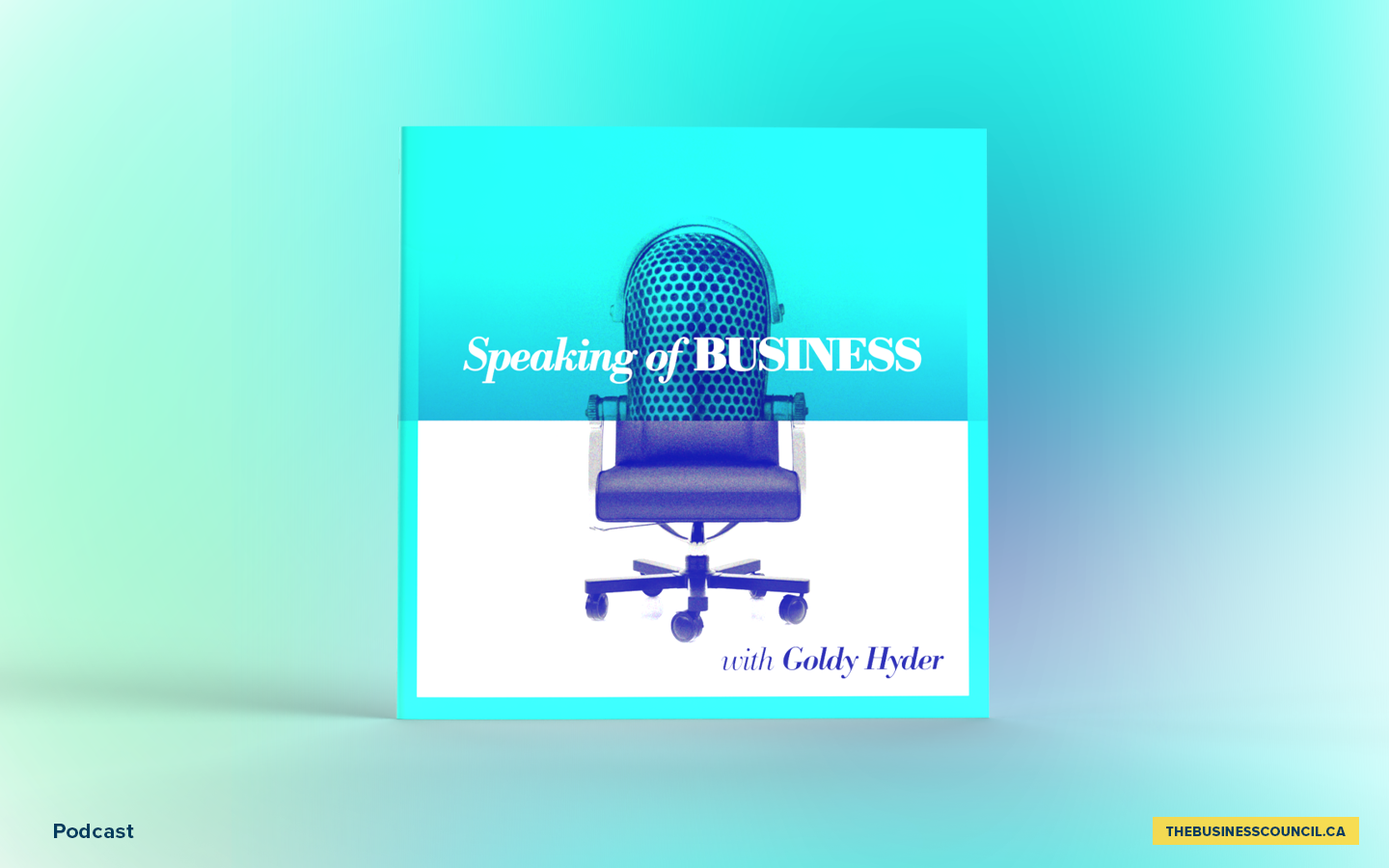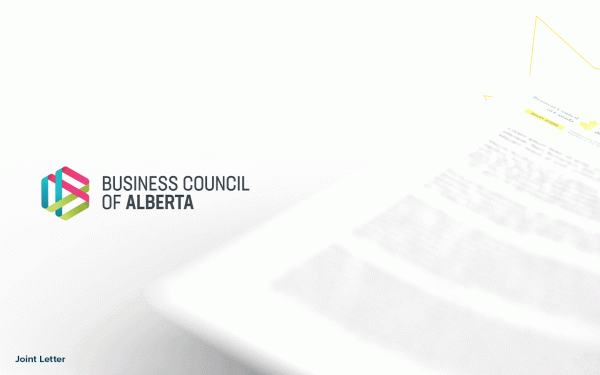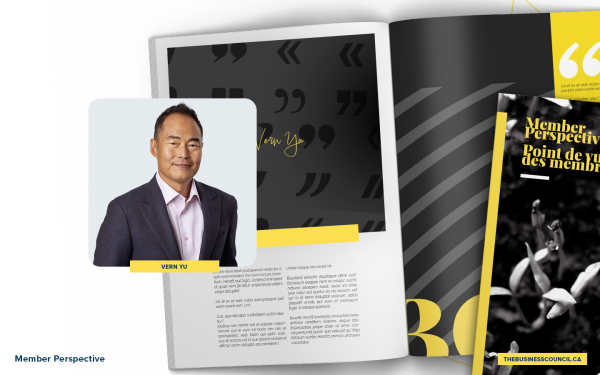The energy industry has got to be part of the solution
In light of the COVID-19 emergency, we’ve temporarily suspended our regularly scheduled series of conversations with Canadian CEOs. But we’re not going away. Instead, we’re going to pivot to the health emergency itself. We’re going to explore the impact on companies and workers across the country. And we’re going to find out how business leaders are responding to crisis.
“The energy industry has got to be part of the solution.” Al Monaco, President and CEO of Enbridge, discusses the role of energy in Canada, how Enbridge is supporting communities through the COVID-19 pandemic, and the transition to a low carbon economy.
Latest Podcasts
Transcript
Goldy Hyder:
Welcome to Speaking of Business. I’m Goldy Hyder of the Business Council of Canada.
Goldy Hyder:
Today, we’re talking about two words, resilience and recovery. For weeks now, we’ve seen businesses across the country show incredible resilience, as they have stepped up to respond to the COVID-19 pandemic, changing the ways they operate, and helping those in need during this challenging time. But, business leaders are also focused on recovery. How can we co-exist with this virus? How do we get the economy moving again? And, how can we learn from this crisis, in order to build back better?
Goldy Hyder:
These are all great questions for my guest today. Al Monaco is president and CEO of Enbridge. The Calgary based energy company operates throughout North America, employing 13,000 people. Welcome to the podcast, Al.
Al Monaco:
Thanks Goldy, appreciate you having me on.
Goldy Hyder:
Well look, let’s jump right in. As my intro said, these are extraordinary times, and we’re all learning how to cope, and adapt to these circumstances. I’m going to ask you that quintessential consulting question. What’s keeping you up at night?
Al Monaco:
Well, that’s a good way to start. You said extraordinary, and I think that’s right on the mark. And, our respond to this, I think, has been driven by the uniqueness of the situation. I mean, if you think about it, and you know this well, Goldy, we’ve had this triple whammy here, massive social, economic, and business impact. The scale here has been global, and what’s different is the speed by which the game has changed. Normally, we get fore-warnings of deep recessions and the like, but not this time around, it came up on us quick.
Al Monaco:
Our approach here has basically been to stick to the plan. But, there’s no doubt that we took some immediate action on, let’s call it, high priority issues. So we got into crisis management mode very quickly, and unfortunately we’re experienced at managing all kinds of crisis in that we are industrial company. But, this time around, the action around crisis was around protecting health, that was first and foremost. Making sure that we kept the business running, and we’re an essential service, energy’s critical to the economy and our front lines are also critical to all of that. So, we went through that, we did a lot of scenario planning within that crisis management mode, around people, operations, and financial aspects, and we set out the 60, 90, and 120 day plan, so that, I think, worked quite well.
Al Monaco:
What’s keeping me up, to get to your question, is as an industrial company, I’m always worried at night, when I wake up, about safety and environmental incidents that can affect the public, that’s always number one. In this case, I would say the health of our frontline people, definitely the risks around reentry, and as well, the mental health of all the people in the organization. And maybe another one I’ll add in there, in the same breath, is the economic outlook, and just the depth of this depression. I don’t mean to imply that I’m awake all night, but certainly those are the big ones.
Goldy Hyder:
You’re not getting much sleep at all.
Al Monaco:
Yeah.
Goldy Hyder:
Well look, let’s just talk a little bit about the health side of this, because as you’ve noted, in the rest of the country, for the most part, this is a health emergency. But, in Alberta, you’ve got the health and economic crisis at the same time.
Goldy Hyder:
On the health stuff, what are you doing, what have you been able to do, to keep your employees safe, specific to the virus challenges? In terms of PPEs, tracking, testing, how are you managing?
Al Monaco:
Right. Well, all of the things that other companies are doing, I’m sure, as well around PPE and social distancing. For us, I would say the biggest thing has been, as I mentioned earlier, the front lines. We have control centers, emergency respond units, field people. Setting up protocols to keep these aspects of our business running was crucial. And, in particular the control centers, I’ll just mention.
Al Monaco:
Goldy, think about a room full of people, I’m talking about probably 125 per shift, that are monitoring each station, and each remote access point along our entire system. They’re the eyes and ears of the company, on what’s happening out there. And without them, we really can’t operate the system safely, so making sure they were protected, including some contingency plans around what if some of them were ill, how do we backfill. We had separate centers for different groups to occupy at different times, depending on what the outcome was at the time. So, really focused on the frontline, and making sure that we could run.
Al Monaco:
Aside from the normal health things that we were doing, obviously we put everybody back into their home office very, very early on, actually, probably one of the first. We moved to that very quickly, and think goodness for great IT support, which basically made it seamless. I mean, when you think about all those people getting on a system at one time, and everybody in the city and the country’s doing it at the same time, I think it was a great outcome, and a great demonstration of the technology capability.
Goldy Hyder:
Now, someone suggested that the virus has acted as a disruptor, to accelerate change in corporations. Has that happened at Enbridge?
Al Monaco:
You know, I would say that we’re always thinking about that, particularly with respect to how people work, in home offices in particular. But, I would say the key for us is to make sure that we’re keeping our eye on the long-term ball, while managing these, let’s call them short term issues.
Al Monaco:
What I mean by that is when we looked at the business immediately, and through our scenario planning we said, “Look, what do we need to do here, to make sure that we protect against the uncertainty?” Everybody was very uncertain about the length of the COVID issue, whether or not we would get a vaccine, and how we would position to reopen. So we took a two step approach.
Al Monaco:
We said look, we don’t know what’s going to happen, or what the timing’s going to be, so let’s demonstrate, first, some near term, what we call bolstering actions, to protect against that uncertainty. So what does that mean? Preserve capital, and we’ve got a very strong balance sheet. But, I think at the time, we said, “Let’s make sure that we preserve as much capital as we can. Let’s get the costs because we don’t know what the next two, three years are going to look like on growth, so let’s attack the cost line, where we can, without affecting safety or health.”
Al Monaco:
And then, another one was actually liquidity. Again, very strong balance sheet, lots of good access to capital, but we didn’t know whether or not the capital markets were going to be shut down. So we got some excess liquidity, that would basically allow us to keep our programs going for a year or two, without even accessing any refinancing in the capital markets.
Al Monaco:
The next part of it, though, was more driven by the longer term. We asked ourselves look, is this going to change the world here, as far as energy consumption? We always look at supply and demand fundamentals, and concluded that look, that’s still intact, the basic proposition around demand and supply for energy is intact because we know the population’s going to grow by at least two billion people in the next two decades. We’re going to have more and more urbanization, that’s a fact. And, there’s going to be a growing middle class, and that’s going to still require a heck of a lot of energy.
Al Monaco:
So when you’re dealing with these short term issues, and these priorities that pop up from an event like COVID, you’ve got to come back and say, “Look, we’ve got to keep the longterm in mind as well, and really maintain our optionality to grow the business. We’re lucky that we have so many avenues from which to grow, going forward.” So, that’s how we approached the overall issue.
Goldy Hyder:
Well look, that’s a lot of valuable insight there, in terms of business continuity, and thinking both short to long term.
Goldy Hyder:
One of the things that’s said is “all politics is local,” but I think that you know, and I know, that so too is all business. When it comes to Enbridge, you’re really plugged in, and tapped into the communities in the countries in which you operate. What are you finding on the customer side, and how are you helping, from a community perspective, those who have been really harmed by this virus?
Al Monaco:
Oh yeah, I’m really glad you asked that one, on the community.
Al Monaco:
I have to say, Goldy, out of the many things that we think we do for society anyway, not everybody agrees all the time, but we’re especially proud of how we interact with our communities. As I mentioned earlier, we’ve got a lot of experience with this kind of thing. The Houston floods, the Calgary floods, Fort McMurray wildfires, Katrina, and things that have gone on in Ontario around flooding as well. So in each one of those cases, our first one or two thoughts were, what does it mean to our community?
Al Monaco:
We’re a little bit unique here because of the way we engage the communities, and it’s driven by the fact that we have thousands of miles of right of way. Which means that we’re in hundreds and hundreds of communities, and our people live in those communities that they work in, all along these thousands of miles. So for us, we always look at immediate respond is, “Okay, what’s the most applicable for us?” We’ve always found that it’s generally food banks, helping first responders, helping healthcare workers, and that was really applicable here.
Al Monaco:
We made the decision, I would say within the first week, that we were going to allocate additional funding to our community efforts. So we reached out to, roughly, 300 organizations focused on those areas I mentioned earlier. We also had a very strong drive on emergency funding for Indigenous groups, about 150 or so Indigenous groups received funding from us, right off the bat. Lots of good stories around this, I could go on and on.
Al Monaco:
I like the one about one of the First Nations communities making face masks, so we purchased a bunch of those, and donating them to the communities. It’s a good example of how we can work with Indigenous communities well. You hear so many stories, and see so much media about how projects are being opposed, but there’s a lot of great stories around our communities as well.
Goldy Hyder:
Certainly our listeners have heard it on our podcasts, and you’ve just added to it with some great examples. Thank you for your leadership, and Enbridge’s leadership, in this regard.
Goldy Hyder:
Let me pivot, if I can, to the future.
Al Monaco:
Okay.
Goldy Hyder:
Let’s look ahead, to the recovery from this pandemic. You and I have had many conversations about our love of Canada, the things we do great. But, we’ve also talked about some of the things that frustrate us. What lessons do you think we can learn, as Canadians coming out of this? And, how will that help us build back better?
Al Monaco:
Okay. Well, again, an excellent question, Goldy.
Al Monaco:
You know, I think that the one item that’s really come out of this for me, and I know a lot of other people, is how the COVID issue has elevated energy’s role in our society. Let’s just think about what happened, just about right off the mark, when governments named what we do as, basically a pipeline utility company, as an essential service. They recognized right away, we’ve got to keep this part of what we do going. If you think about what you heard on the news, just about every night, fighting the pandemic, PPE, ventilators, respirators, gloves, testing kits, all of that in its entirety requires energy, in one form or another.
Al Monaco:
If you think about what kept our economy going, to the extent it was, and kept everybody safe and healthy in their homes, was supply chains. So whether it’s trains, or shipping, or trucking, or anything in that order where you’re talking about supply chain, restocking, delivering, again, energy plays a critical role there. So as we think about recovering, and the role that we can play to help the economy, the traditional things that we think about is energy, for the most part, is an essential building block to the other sectors. So think about any sector out there, when you think about recovery, what they need is available, low cost, and reliable energy, that’s the first building block.
Al Monaco:
I would say that our industry is a globally competitive one, on energy, and we’re an export economy, so obviously what we do improves the balance of trade. Getting down more to the nitty-gritty of how we can play a role, its new investments in infrastructure. Sell the ready projects that have very high skilled and well paying jobs, not just in Alberta but across North America, and obviously across Canada. People think about the spinoff effects of sectors, energy is not just an Alberta sector. It has huge spinoffs across the country, Ontario, and Eastern Canada.
Al Monaco:
And I would say, and there is where you probably get disagreement across Canada, and we may get into this, I don’t know if you have another question on it, but we feel, in the energy space … I think I’ve been around long enough to know all of the people within it, that drive the largest enterprises. The industry is aligned with the country’s goals, and the government’s goals, around climate and the things we need to do to reduce energy intensity, and how we see ourselves as part of that solution.
Al Monaco:
Those are the kinds of things and roles that I think we can play, but we do need to certainly get on the same page on it.
Goldy Hyder:
Yeah. Well, you read my mind because my next question was exactly that. As you know, we’re not speaking at the end of May here, but last month the Business Council of Canada was scheduled to have a meeting in Calgary, to discuss very specifically the reconciliation of the environment and the economy, what we call Clean Growth 2.0, where we wanted to look at how do you get to the 2030 targets, and how do you build them a plan, and a path forward to net zero by 2050.
Goldy Hyder:
How do we do that, and how has this virus, perhaps, going to change that conversation, when we get back to it? Because, let’s be honest, we all need to get back to that conversation, so we can make the progress that you’ve just outlined.
Al Monaco:
Yeah. Well, the meeting in Calgary, we were all looking forward to. Did you promise, by the way, that you would have it in Calgary again, pretty soon?
Goldy Hyder:
We’ll be back.
Al Monaco:
Okay.
Goldy Hyder:
We’ll be back. You know I’m Calgarian, right? That’s a loaded question to a Calgarian.
Al Monaco:
Yeah, well there you go.
Al Monaco:
Let me start this way, and I don’t know if this is what you want to hear. But, the reality is we do not have a common view of energy’s role in Canada yet. I think we are still debating the future of energy, and whether conventional energy is needed at all. And, I think in order to move forward, we’re going to have to acknowledge, one way or the other, that energy is or isn’t foundational to the growth of this country, and identify the role that we want energy to play so that we can provide the policy clarity to attract investment going forward, so that’s my overall, balanced view on this.
Al Monaco:
But if you step back now, and you think about what we need to do, what are our strengths in this country? It’s basically an export economy, that’s good. I would say that we have unmatched, and you can check the facts on this one, environmental, and regulatory processes in this country. We’ve got an industry that is at the forefront of emissions intensity reduction. Our approach, despite the headlines sometimes, our approach to Indigenous engagement is second to none, we’ve got huge support from most every community along the right of way.
Al Monaco:
We’ve built our expertise in this, by the way, over a long period of time and some mistakes. The workforce in this country, highly educated. We are the furthest ahead … At least, maybe the first, second, or third, globally, in terms of energy technology. And, we’ve got great capital markets, to facilitate investment when we’ve got that framework. But, if you look at the strengths, I think Canada is in an excellent position, here.
Al Monaco:
The issue is, and I know people have talked about a national energy strategy in one form or another, but that’s definitely what we need. We need one that reconciles economic, environment, and energy issues in this country. And, if I could say one thing, it’s we need to recognize that the energy industry has got to be part of the solution, and I think it can lead the transition to a lower carbon economy. And when governments and industry actually sit down together, and work on a common problem like we have around COVID, I think it can work extremely well.
Al Monaco:
The centrepiece though, Goldy, … I mean, you’ll have your thoughts on this, too. But, to me, the marrying up of a low carbon industrial strategy that combines with our climate goals and our export strengths, I think that’s where the key is, in terms of the future of energy, and how we align it with the other priorities we have. So think about exporting of lower emissions intensity energy, natural gas is the best example, where we can displace coal that’s being used elsewhere, globally, we’re exporting our low carbon capability there. We know that’s going to have, hopefully, broad appeal to regions, environmental leaders, and Indigenous groups, and we’ve got a lot of great examples.
Al Monaco:
I mentioned the energy industry has lowered its intensity 28% over the last decade, on an intensity basis. You know that several companies have already talked about reaching for next zero by 2050. But, it’s not just energy, auto has also done a good job in reducing emissions. And then, [inaudible] and coal in Canada have less embedded carbon than in other parts of the world. So, I really think that we’ve got a tremendous opportunity here, if we can get on the same page, and reconcile those three elements.
Goldy Hyder:
Well, I think you said it best, when business and government work together, we can get some good stuff done. Look at the response from industry on PPE shortages, for example. You know, I can’t add anything to what you said.
Goldy Hyder:
I will just say that it’s also an extremely innovative industry, and I don’t think enough credit is given to the industry for innovation that takes place, that helps address climate change. Secondly, I would say when you’re running a $300 billion deficit, and soon $1 trillion debt, you’re going to need a large part of your energy sector to be humming in order to be help paying some of that back, aren’t you?
Al Monaco:
Yeah. You know what? I can’t tell you today whether COVID is going to be the pivot point, if you will, to people recognizing the power of what a very strong energy business can do. But, I think all the elements are there, and I’m hopeful that we can come around to this because it really is quite a powerful piece of an economy. And particularly, when Canada has so many strengths already, and we’re just endowed with so many positives on the energy front.
Goldy Hyder:
Well, that’s probably a great place to stop. But, I do want to sneak in one final question.
Al Monaco:
Sure.
Goldy Hyder:
And this is really because of the fact that, as you noted, you’re a leader that has been through a lot of crises, but this one’s got to be different. I want to know, what are you personally seeing and learning about yourself, as a leader, as you navigate this crisis?
Al Monaco:
You know, I’ve thought about this a little bit, and having been in my home office here, for the last two and a half months, you tend to think about things like that.
Al Monaco:
For sure, the thing that struck me mostly is the absolute criticality and importance of being close to your people. Particularly when they are so affected by what’s happening out there, they’re worried about their families whether its parental care, child care, or just working in a home together, when normally that is not the case. So, I think we’ve really seen a lot on that front, and I’ve been moved by how well our company and our people have responded. We’ve tried to do quite a bit, in terms of over communicating with them, if I can put it that way. We have frequent check ins with the team. One of the things that I found very helpful was actually personally recognizing the front lines, and having one on one conversations with the person in the control center, or with the person that’s got to dispatch work, even though they’ve got their own family crisis to worry about.
Al Monaco:
One of the most inspirational things that I’ve seen in the last two months was a video I received yesterday morning, which was a video of a longtime employee in our Houston office, and that employee, after a nine week battle with COVID, on and off the ventilator, was released from hospital yesterday morning. We had a video of that, and so we’re going to share that around the company. But, it just made me feel great that the person was being wheeled out of the hospital, and it was just a great rallying point for the rest of the company. It was, as I said, one of the best things I’ve seen in a long time.
Al Monaco:
I think another aspect of this, which we watched very closely frankly, was mental health. I think you’ve heard a lot about that recently, in the news, and by other commentators, about how you’ve got to watch that, and really make sure that people have access to help. I think that’s probably the one thing, is the absolute criticality of having people on the same page, and really helping each other through a crisis like this.
Goldy Hyder:
Al, I can’t thank you enough for doing this, a lot of content there for our listeners to absorb. We really appreciate you making the time.
Al Monaco:
Okay Goldy, thank you for having us, and hopefully we’ll chat soon.
Goldy Hyder:
Al Monaco is president and CEO of Enbridge. If you would like to hear more of our Speaking of Business conversations about the COVID-19 crisis, you can find them all wherever you get your podcasts. Or, simply go to our website, SpeakingOfBiz.ca, that’s biz with a zed. Until next time, I’m Goldy Hyder, thanks for joining us. Be well.










